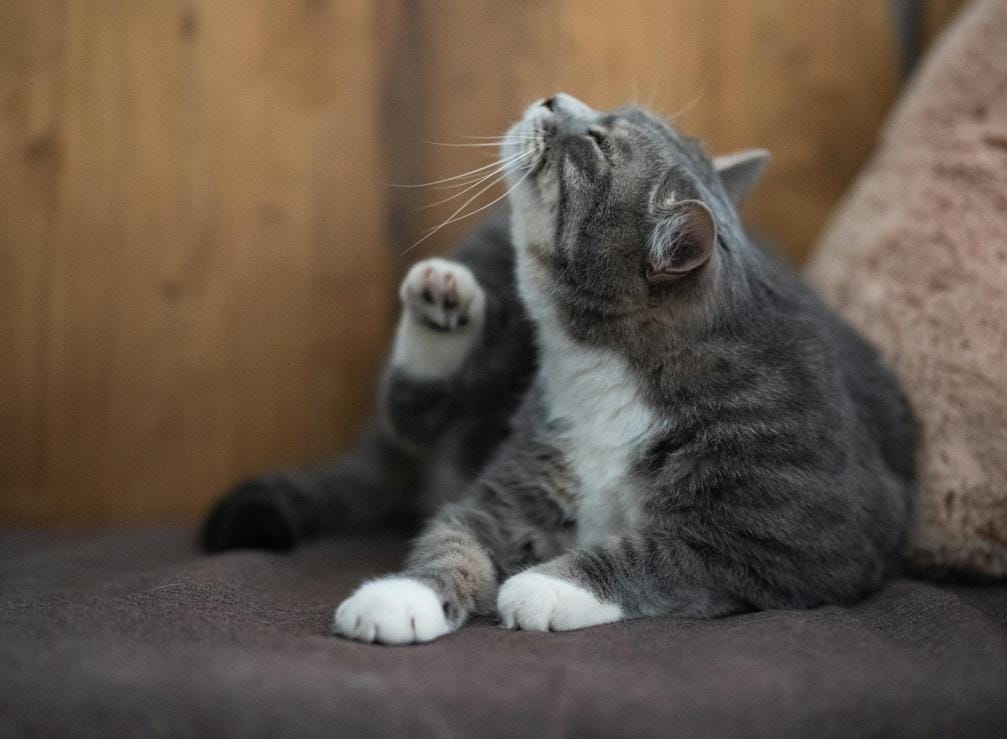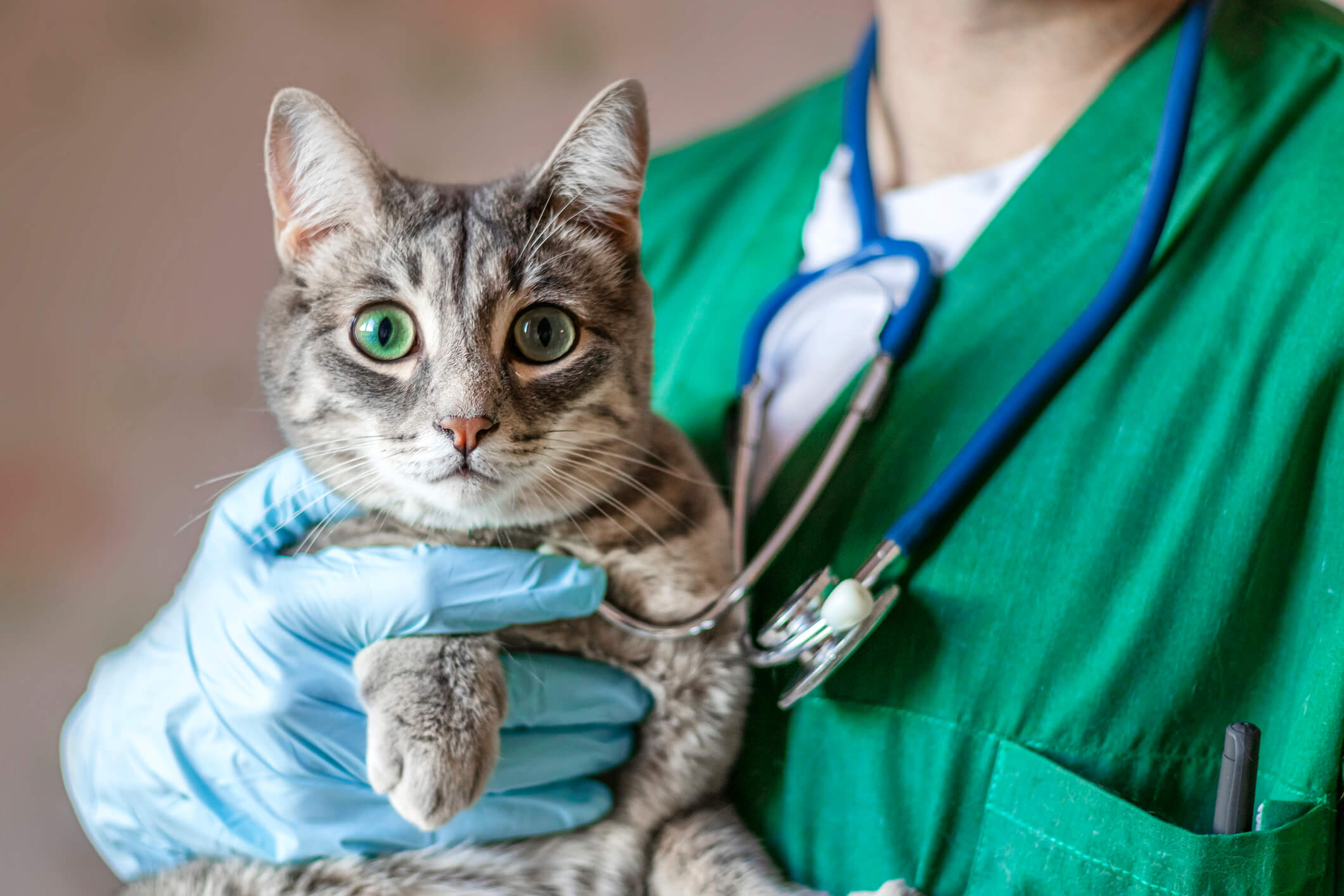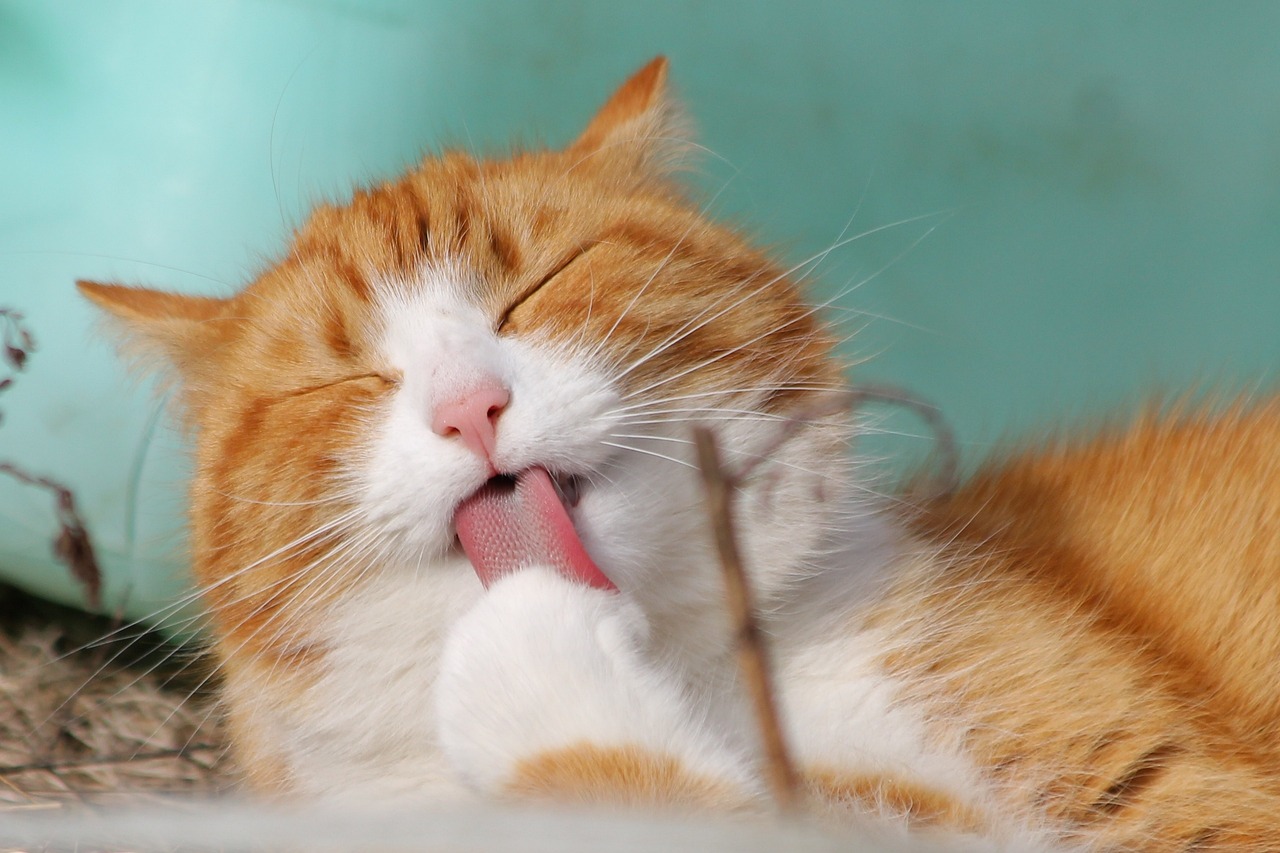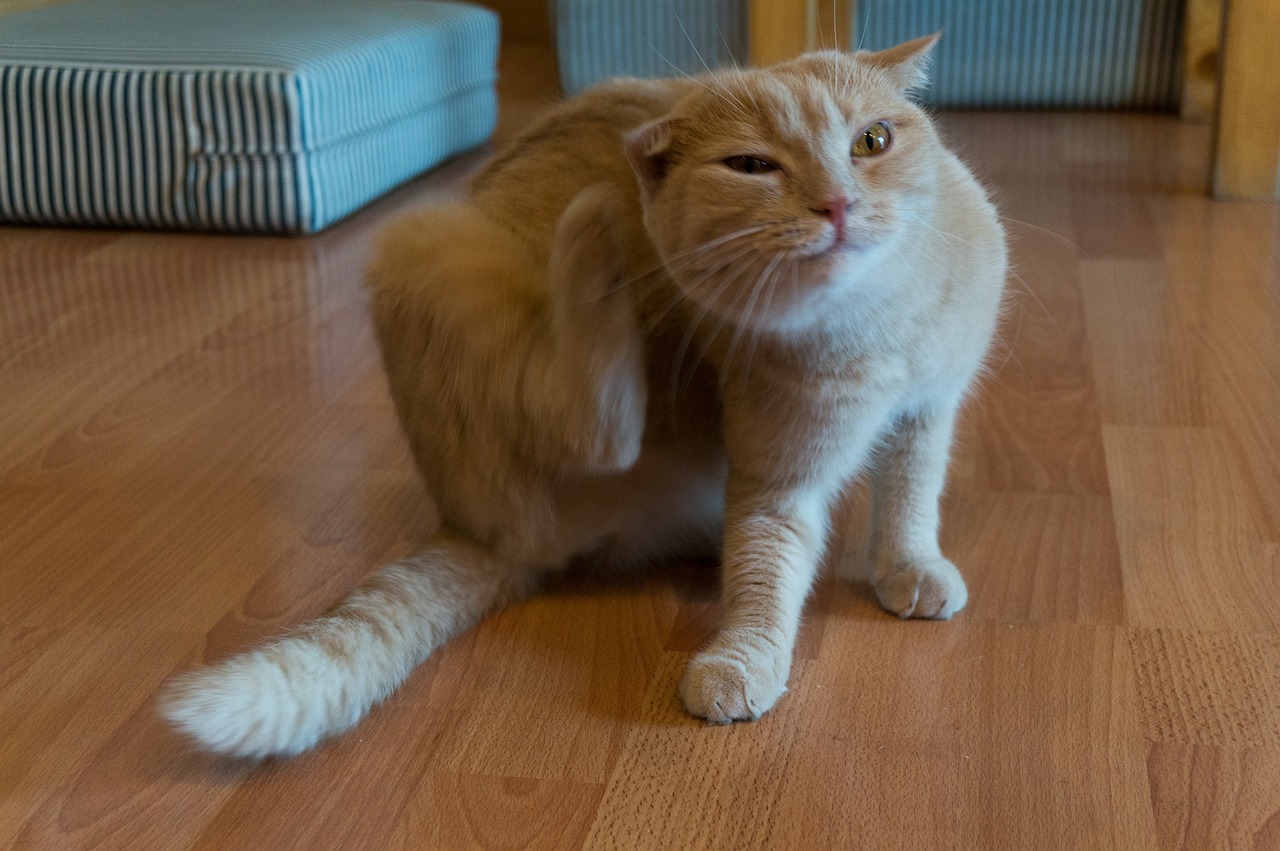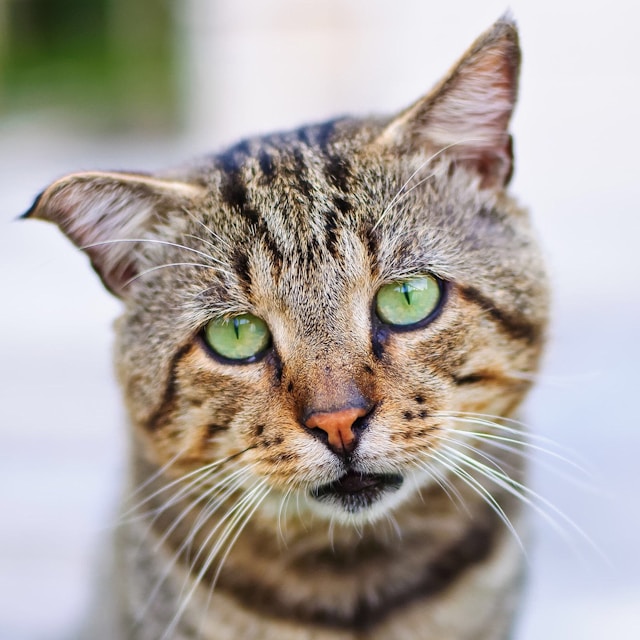Savannah
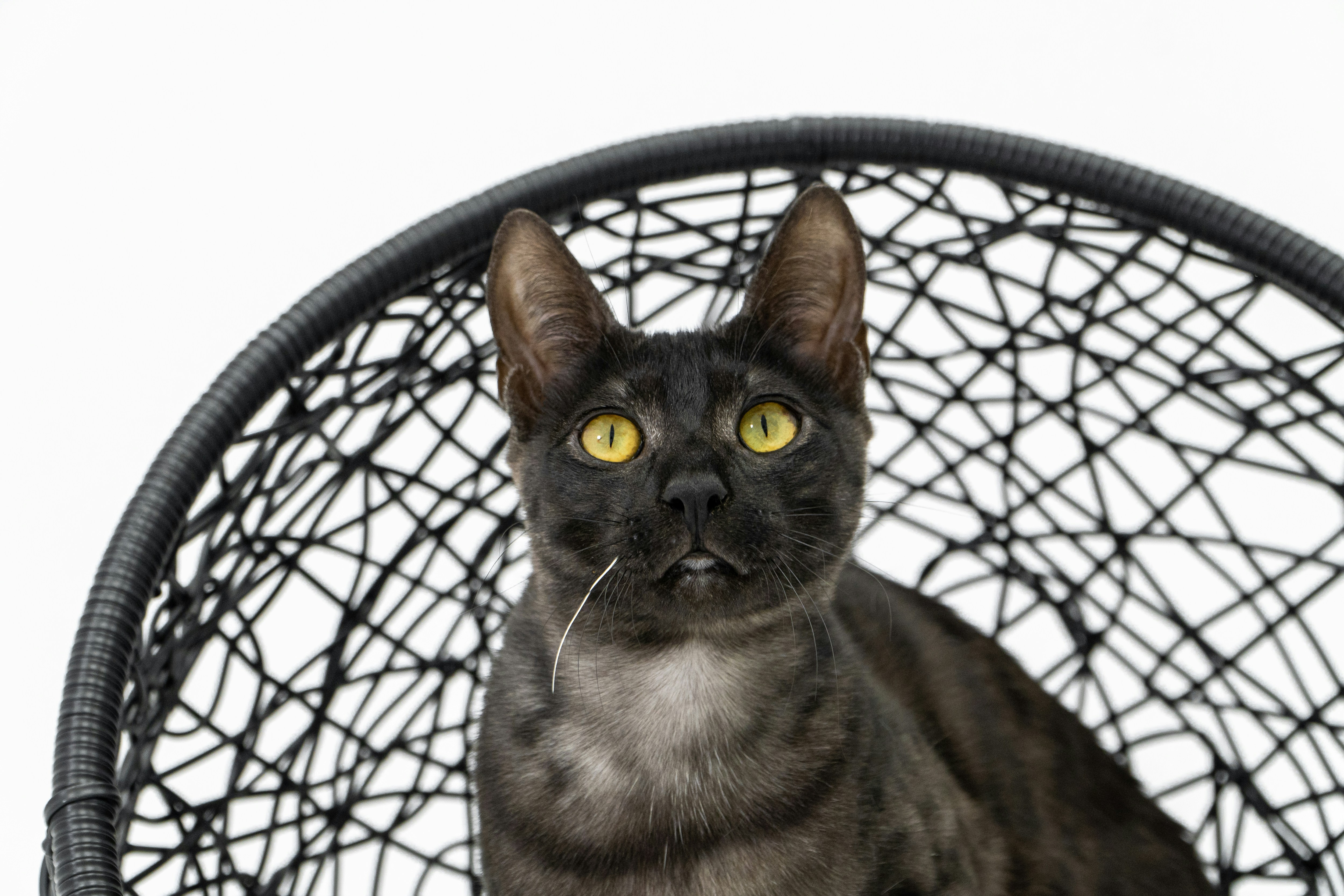
| Official Name | Savannah |
| Common Name | Savannah |
| Pet Height | 14 to 17 inches |
| Pet Weight | 12 to 25 pounds |
| Lifespan | 12 to 20 years |
| Good With | families |
| Temperament | affectionate, bold |
| Intelligence | high |
| Shedding Amount | normal |
| Playfulness | high |
| Energy Level | active |
| Vocal Level | frequent |
| Coat Length | short |
| Colors | black/ebony, chocolate/brown/sable, lavender/silver |
| Patterns | solid, tabby |
| Other Traits | easy to groom, easy to train, friendly toward humans, friendly toward other pets, highly territorial, high prey drive, strong loyalty tendencies |
These cats are a unique blend of wild and domestic, created by crossing a Siamese cat with a wild African serval. This mix gives them a tall, elegant appearance, with large perked ears, long legs, and a distinctive spotted coat that echoes their wild ancestry. Despite their exotic looks, they are friendly and loyal, making them great companions.
Savannah cats can grow quite large, with some adults reaching up to 17 inches in height and weighing as much as 25 pounds, depending on their generation. The first-generation hybrids, or F1 and F2, are usually larger and have beautifully spotted coats in shades of brown, tan, and black. As you move to later generations, the cats become a bit smaller and more docile, but they still retain their wild relatives' striking colors and patterns. These cats are intelligent and curious, but they might be too much for someone new to cat ownership.
Though they've been around for a few decades, Savannah cats are still relatively rare. Some states even have regulations about owning them, especially for the early generations. It's important to check local laws before bringing one of these unique cats into your home.
We consulted with a veterinarian to get all the essential details about the Savannah cat's temperament, living needs, care, and health.
Appearance
Talk about elegance! The Savannah cat's tall, lean build and eye-catching spotted coat give them a striking resemblance to miniature cheetahs. According to the Guinness Book of World Records, these stunning cats can reach up to 17 inches in height, earning them the title of the world's tallest domestic cat. Male Savannahs can weigh as much as 25 pounds, while females typically weigh around 12 pounds. Their size largely depends on how closely they relate to their wild serval ancestors.
Savannahs come in various coat colors, including black, brown spotted tabby, silver spotted tabby, and black smoke. Their coat is short, dense, and easy to care for, requiring a quick brushing every week or so. One feature that really sets Savannah cats apart is their eyes. With a slightly hooded, almond shape and a dark line running from the tear duct, their eyes give them a unique, captivating look. While eye color usually complements their coat, it's not a strict rule.
Heather Tarticchio, a Savannah cat breeder from St. Louis Savannahs (TICA-registered), emphasizes the importance of doing homework before bringing home one of these kittens.
"There are many generations, sizes, and personalities with Savannah cats," she advises. "Make sure you know which generation is right for you."
Personality
If you're considering adding a Savannah cat to your family, knowing that this breed is anything but a lazy lap cat is essential. Savannahs are incredibly athletic and active, often preferring to jump up to the top of your kitchen cabinets (they can leap an impressive 8 feet!) rather than lounging around.
Savannah cats are always looking for new challenges and adventures, and many people say they're more like dogs than typical cats. These sleek and agile cats love water, so don't be surprised if your Savannah decides to join you in the bathtub or splash around in a kiddie pool. They're also highly trainable; some owners even leash-train them to enjoy outdoor activities.
Socializing your Savannah kitten is crucial, as they can be wary of strangers. However, once they bond with you, they are incredibly loyal, earning the nickname "Velcro kitties" because they'll follow you around the house just to be near you. While Savannahs are known for being talkative with various unique vocalizations, this isn't always the case for every cat.
According to Tarticchio, Savannahs make fantastic pets for the right family. "They have a lot of energy and require a lot of attention, so they might not be the best fit for households where people are often away. However, they tend to bond closely with any animals they're raised with, provided those animals are open to their affection. Kids and dogs are usually great companions for this reason."
If you're considering getting a Savannah, remember that their litters are labeled F1, F2, F3, etc. These labels indicate how many generations they have removed from their wild serval ancestors. The lower the number, the more "wild" traits you might notice, such as climbing, pouncing, and "hunting" their toys. Earlier generations of Savannahs also tend to be larger in size.
Marilyn Krieger, a certified cat behavior consultant from San Francisco, emphasizes the importance of mental stimulation for all cats, especially for Savannahs. "These cats are brilliant and need plenty of enrichment and activities," she says. Krieger suggests clicker training as a great way to keep them mentally and physically engaged.
Living Needs
If you're considering a Savannah cat, don't worry too much about the size of your home. What matters is that you provide plenty of spots for your cat to hide, run, and climb. This means setting up at least one cat tree and stocking up on interactive toys to keep her busy. Since Savannah is very active, placing several scratching posts and toys around your home is also a good idea to give her many opportunities to stretch and scratch.
Savannah will likely enjoy watching videos of birds and squirrels or playing cat games on a tablet. She might also love playing with toys in a shallow pool or pan of water if you have the space.
Be mindful of where you place plants or fragile items since Savannah cats can jump up to 8 feet high. Even the top of your refrigerator isn't safe from their powerful leaps. They're also good at jumping over fences, so never leaving them outside unattended is essential.
These cats can get bored quickly, so having another pet, like a cat or dog, can be a great way to keep them company. Savannahs are social and don't like being alone for long periods. Ideally, they'd prefer you around all day, but they can adapt to a typical workday schedule.
Provide a safe outdoor space like a screened porch or patio—often called a "catio." Savannah will love spending time outside in the fresh air, watching squirrels, and staying safe.
Before bringing a Savannah cat home, check with your local government. Some places have strict rules about owning these cats due to their wild ancestry.
Care
To keep your Savannah cat happy and healthy, giving her plenty of mental stimulation along with regular vet visits is important. Fortunately, her short coat doesn't need much grooming—just an occasional brushing to remove loose hair and dead skin. Like all cats, your Savannah will need her nails trimmed regularly, and it's essential to maintain good dental hygiene. It's a good idea to start trimming nails and caring for her teeth while she's still a kitten. That way, during these routine tasks, you can avoid struggles with your large, fully-grown Savannah.
Make grooming sessions enjoyable for your Savannah while she's young by rewarding her with treats or toys afterward. If you hope to take her on outdoor adventures someday, begin leash training early. Remember to go slowly and never push her into doing something uncomfortable.
Health
Like any pet cat, spaying or neutering your Savannah as soon as your vet suggests is essential. Although male Savannahs in the F1, F2, and F3 generations are often sterile, neutering them is still advisable to help prevent unwanted behaviors.
Savannah cats, being hybrids, tend to have long lifespans. While we don't have much information about specific health issues they might face, they can be affected by the same common illnesses that other cats encounter. Typically, a Savannah cat can live anywhere from 12 to 20 years, so when you bring one into your home, you gain a lifelong companion.
Exercise Requirements
Savannah cats are incredibly athletic and full of energy. They love to climb and feel most comfortable when they can perch up high. To keep them happy, providing plenty of toys, climbing spots, and tall cat trees is essential. Savannahs need a lot of exercise and can even be trained to walk on a leash, making daily walks with their owners fun.
Their high energy and playful nature might wear out other pets in the house. Savannahs always look for new ways to have fun and keep busy. They thrive on human interaction and enjoy energetic playtime with their owners.
Training
Savannah cats are incredibly smart and often behave in ways that remind you of dogs, but they're not as easy to train as dogs are. While they can learn basic commands, they're still cats at heart and won't reach the same level of obedience as a dog.
If you decide to train your Savannah cat, remember they can be jumpy and cautious. Start slowly, be consistent, and always use positive reinforcement, such as treats and affection, to encourage them.
History
The first Savannah cat, named Savannah, debuted in 1986. She was the result of breeding a wild African serval cat with a domestic Siamese. This unique pairing produced a cat with the striking spotted coat and graceful build of her wild father, yet she inherited her mother's friendly, domestic nature.
Breeders quickly recognized the beauty and potential of this remarkable new breed. Over the years, the number of Savannahs grew, and by 2001, the International Cat Association officially recognized Savannah cats as a distinct breed.
Fun Facts
Savannah cats have a unique love for water and are known to swim boldly, whereas many other cats would hesitate. Scarlett's Magic, a Savannah cat from California, earned two Guinness World Records: she was recognized as the "Tallest Cat in the World" at 18.07 inches and the "Longest Cat in the World" at 42.72 inches from nose to tail.
Singer Justin Bieber splurged $35,000 on two Savannah cats named Tuna and Sushi. Meanwhile, model Valentina Zelyaeva, who travels extensively for her work, has a Savannah cat named Mr. B, who is her constant companion.
Get insurance plans with wide-ranging coverage options








